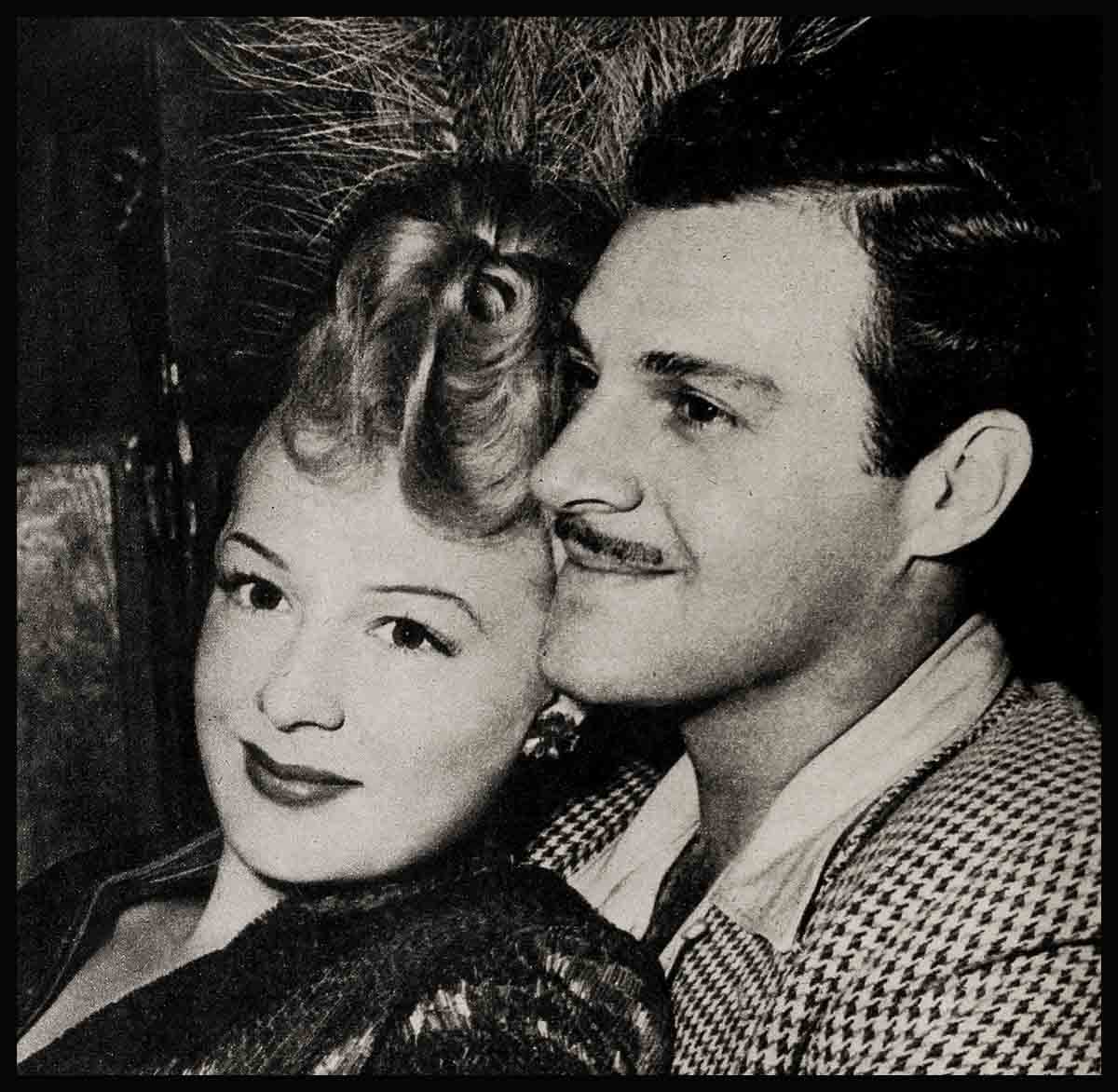
Week-End Marriage—Betty Hutton & Ted Briskin
They were separated twice and reconciled twice, which is itself an unusual thing in Hollywood. Now they’re back together again in a new kind of marriage—marriage by long distance.
The people who get their polish and most of their information by leaning on cafe tables say it won’t work. How can it—they ask—if he lives in Chicago, she has a house in Hollywood, and they see each other weekends, some weekends? Is that marriage?
Betty Hutton thinks it is, but from the smile on her face you can’t tell if she’s serious. She smiled the same way after both her separations, and everyone assumed that she couldn’t have been happier. She was as vivacious as ever with a goodbye-I’ll-never-miss-you gaiety. Now that Ted’s back, or at least within communicable distance, she talks about the past with a hint of tears in her voice.
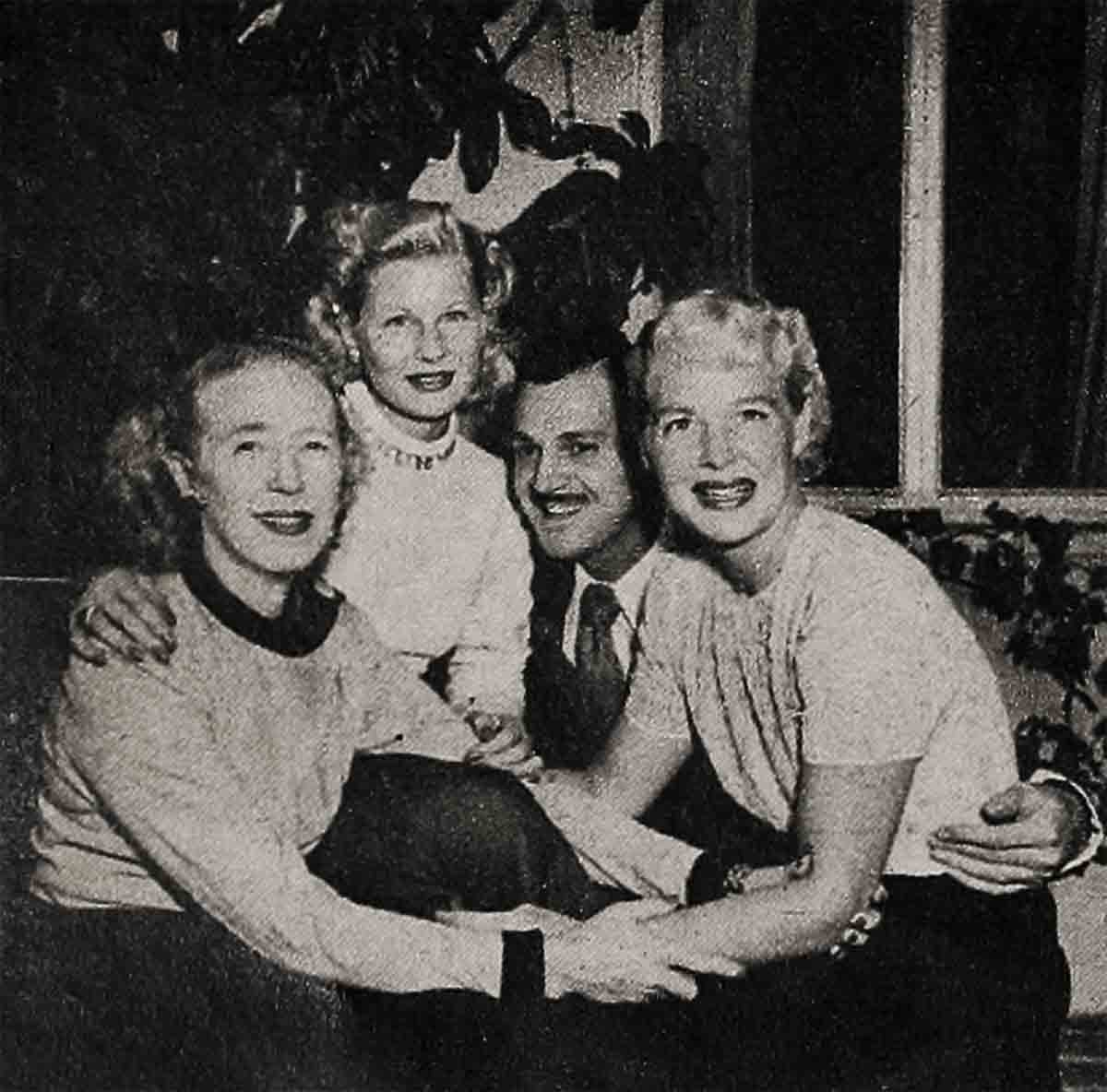
“This must be for real,” says one gossiper to another. The other laughs, “That’s what you said when they parted.”
Nobody knows if this marriage will last. Her friends hope it will, but Betty’s hard to understand and she plays whatever role she wants so well that someday she may even fool herself.
While she and Ted were separated, for instance, Betty attended an all-girl birthday party, where she, as usual, was the liveliest guest. While the candles were being blown out, a Paramount designer turned to Betty and remarked, “I’ve never seen you so gay. Betty.”
Betty flashed her a big grin.
“Going out with Bob tonight?” the designer asked. (She was referring to Bob Sterling, whom the gossip columnists were referring to daily as Betty’s next husband.)
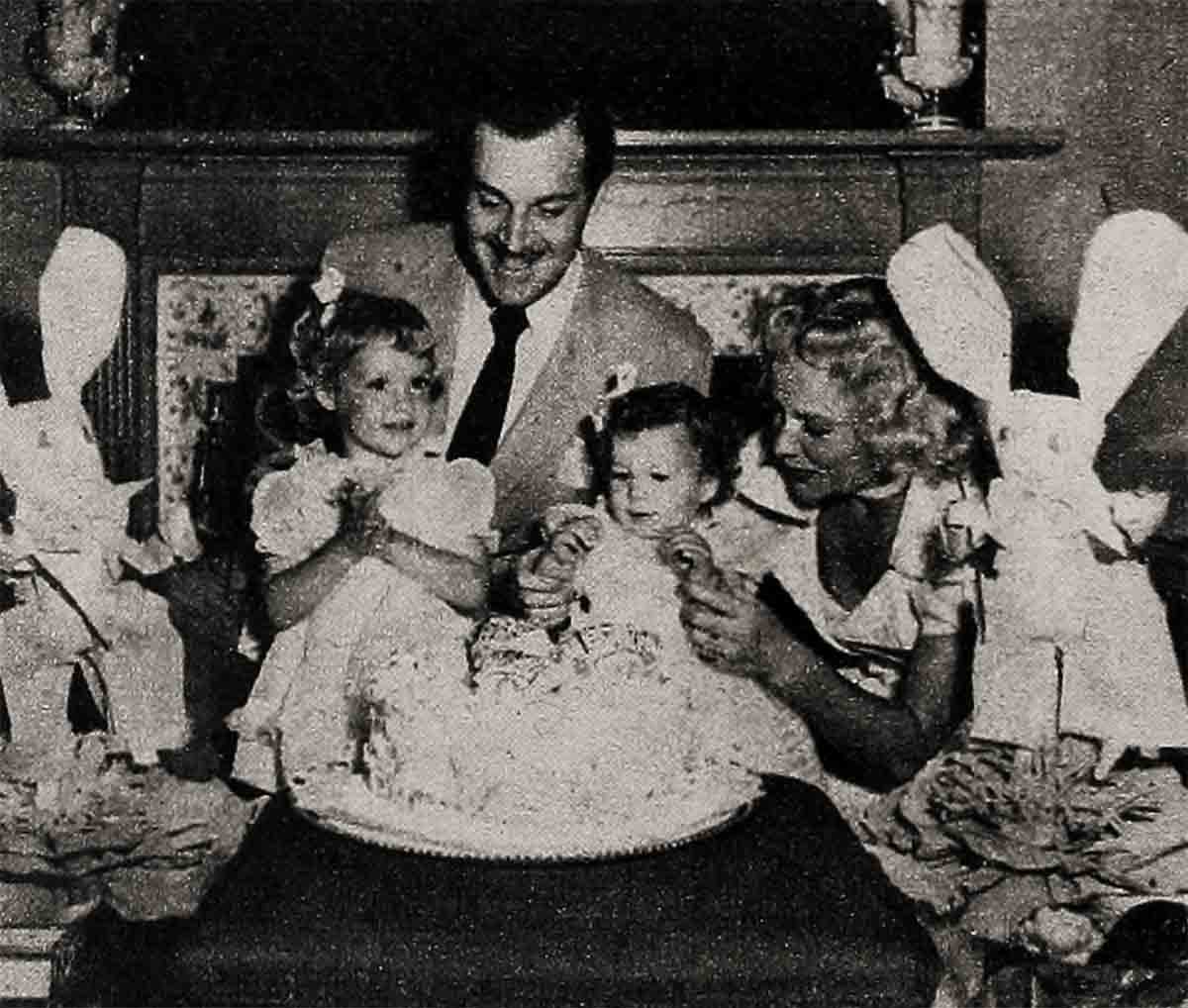
“I certainly am. He’s fun.”
“I know he is,” said the designer. “But I never thought you two would get together.”
“Why not? He’s a grand guy. And he talks my language.”
Betty’s language doesn’t have much to do with casual conversation. It’s intensely involved with show business, and her long struggle to make a place for herself in that extravagant world has lessened her interest in many other mundane matters.
Ted Briskin may have tried to talk Betty’s language, but it was always hard for him. He could never take to Hollywood and its glamorous, brittle goings-on. And he couldn’t take to the constant demands on Betty’s time by other people whose pleasure it was to build a star into a whole constellation.
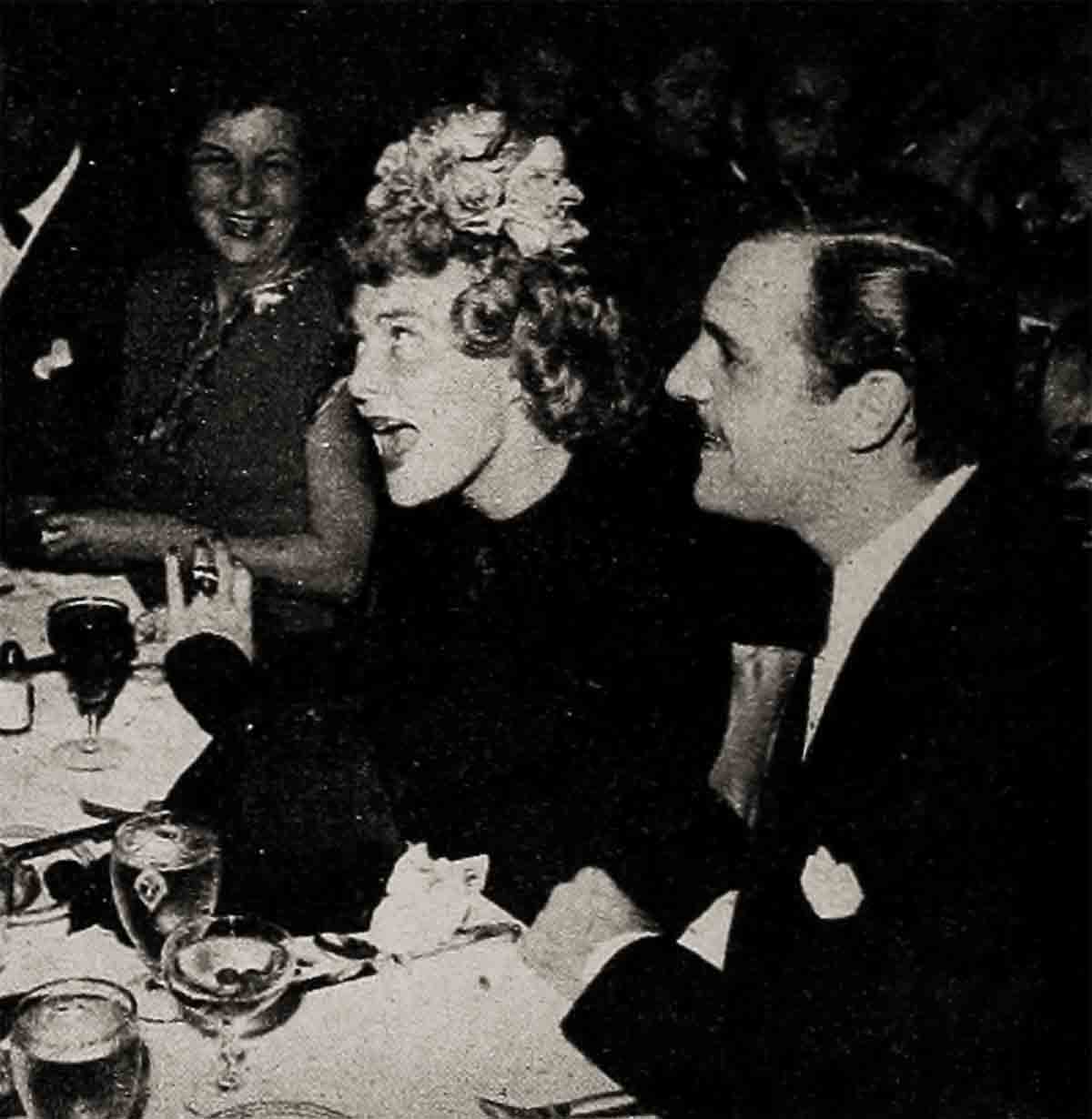
He feels at home in Chicago where he’s taken over his father’s business. He’s top-man there, which is what he enjoys.
But business makes its social demands, too. It’s nice to have a wife around the house to help swing a deal or charm a dealer. Ted can’t have that now unless he invites Betty a week in advance. Even then, her work might not let her get away.
Betty has a social life, too—that’s part of her job. There are all sorts of functions a famous star has to attend, and not always unescorted. During their separations, Betty never lacked dates. And even now, another escort besides Ted might have to step in.
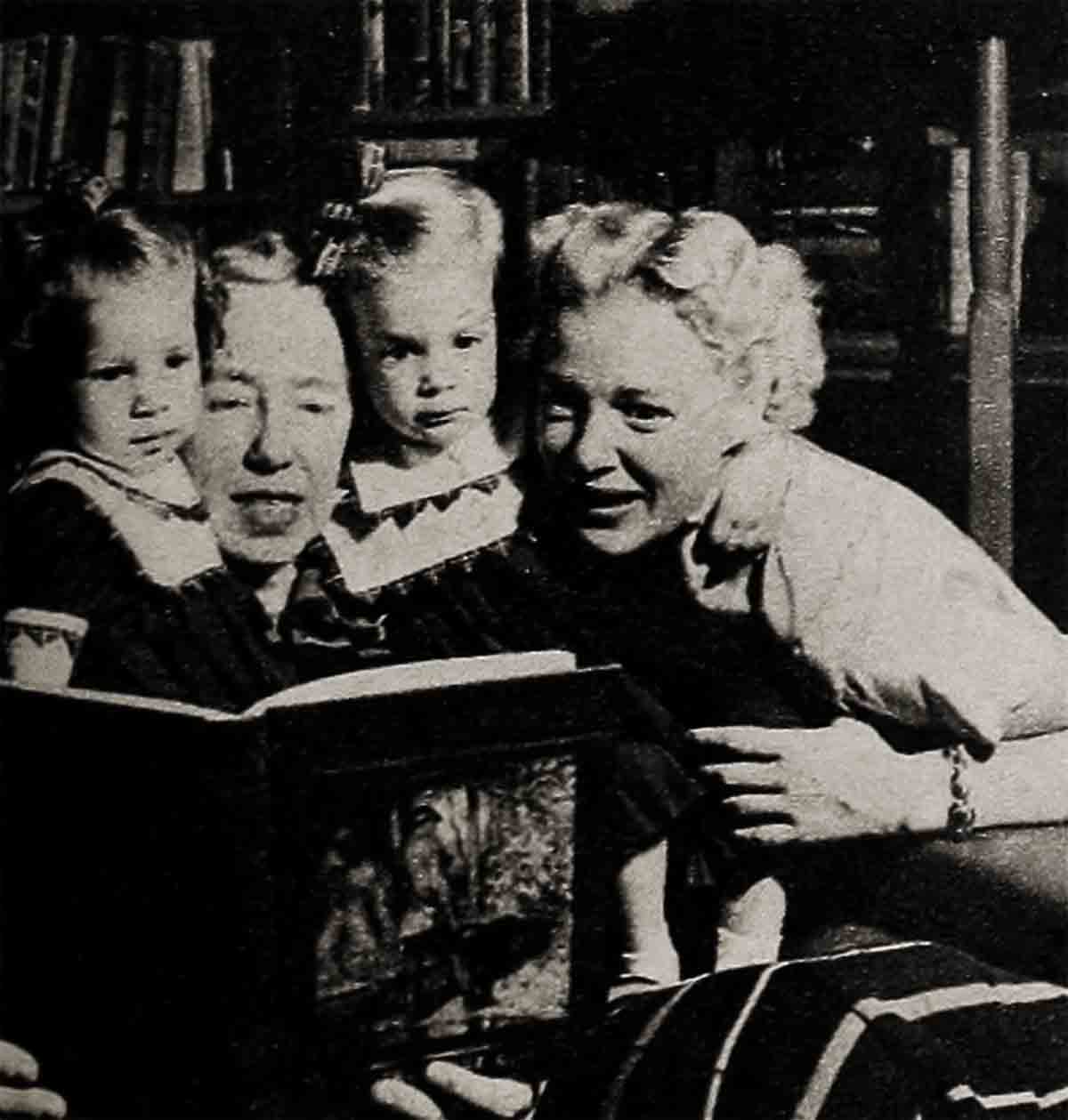
(Only recently, Betty flew to New York for a few days, but Ted didn’t—even though Chicago’s only four flying hours away. One night, during her stay, she dined at 21, and the diners almost spilled their vichysoisse when they noticed that the man she was with was not Ted Briskin.
As she and her escort were being seated, Betty recognized a friend at the next table and leaned over to say hello.
“Darling, it’s wonderful to see you,” her friend cried. “How long are you going to be in town?”
“Not as long as I’d like to be,” Betty laughingly replied.
“But where’s Ted?” her friend asked.
Betty’s smile faltered momentarily. “Oh, he couldn’t make the trip this time.”
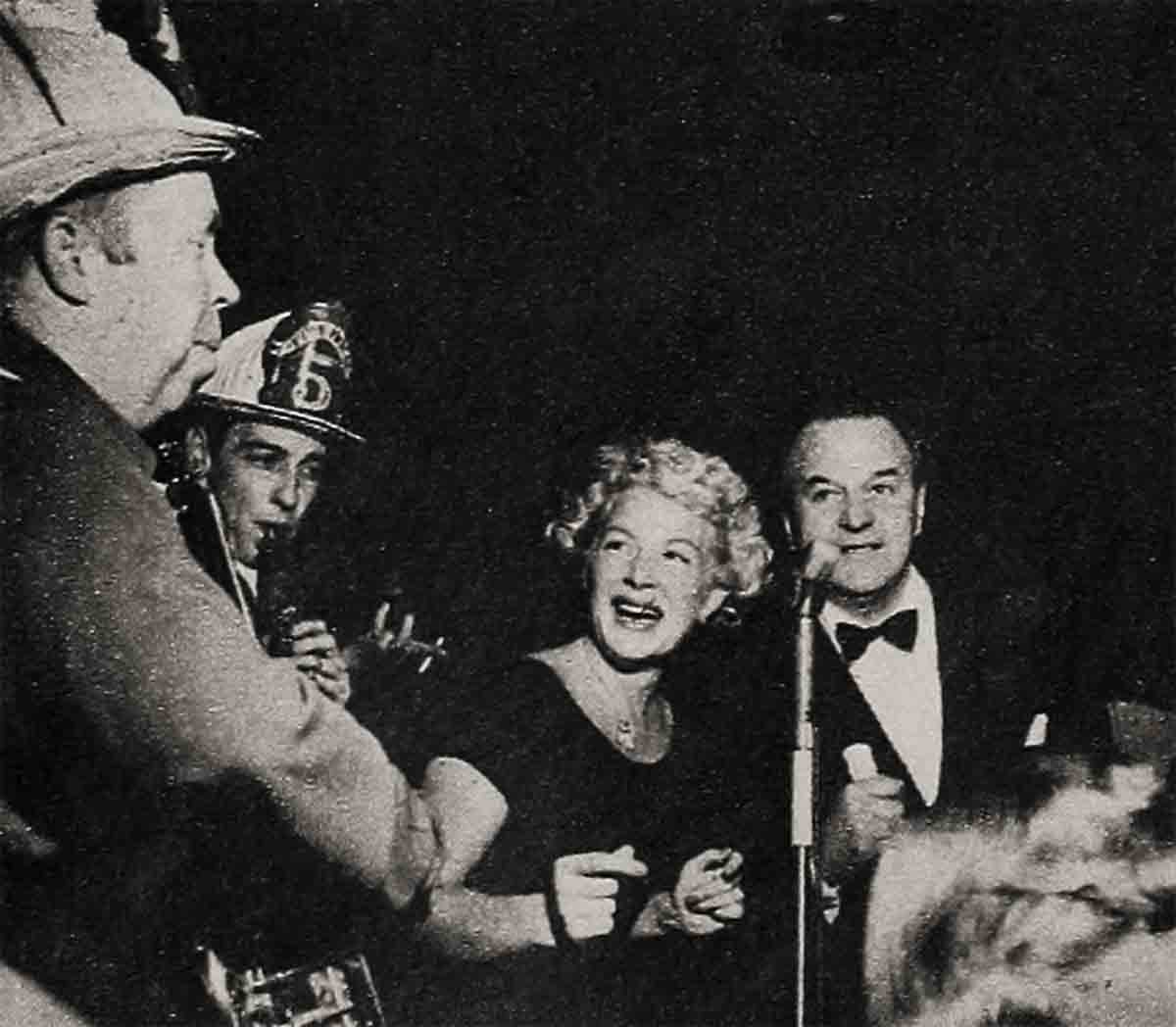
Probably he couldn’t, but it didn’t help public relations with the newsprint announcing their reconciliation hardly dry. Betty was in New York without him, and that’s not the way their agreement read. The agreement said they’d spend weekends together. He’d fly to Hollywood, or she’d bundle up the children and take them to Chicago. But from Chicago to New York is the shortest trip of all. . . .
This was the first time, but certainly not the last that his business commitments or her career would stand between them. He doesn’t like being alone; she likes it even less. Their search for companionship is apt to widen the rift between them, and they may find that they’re strangers. It may even add up to a case of absence making the heart grow fonder—of someone else.
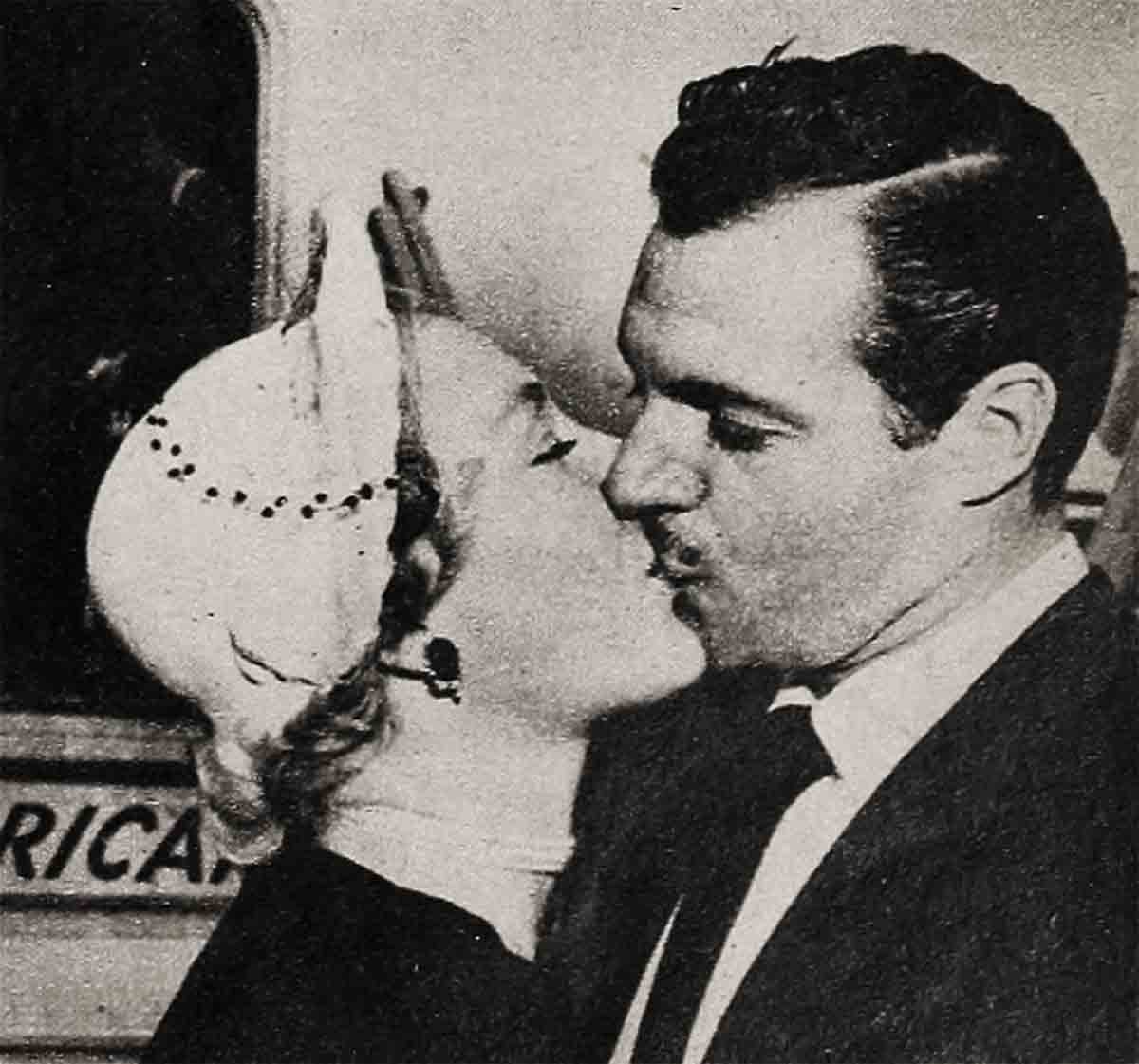
If a clash of personalities separated them—Hollywood thinkers suggest—why should it bring them together again? Certainly their personalities haven’t changed. And if their love is so strong, why can’t they manage to keep it in one state? California’s big enough for two, so is Illinois. Maybe they’re doing it for the children. The gossipers think that that makes a cute story. Betty’s not in love, they say, she’s a martyr. And isn’t it sweet to be a martyr for one’s children? Unfortunately, a “weekend-marriage” can do the children more harm than no marriage at all.
Lindy and Candy are old enough to notice their father’s prolonged absences. They’re beginning to wonder why they have to pack a valise almost every time they see him. The contrast between their way of life and that of their friends will become increasingly apparent to them as the months go on. Children are pretty simple about complicated problems. We have a daddy—they think—why isn’t he home? Children alone can’t hold a marriage together; they need assistance from their parents.
All the sympathy and advice in the world can’t stop two people from losing their tempers if that’s what they want to lose. And even the nicest of in-laws—the Briskins, and Betty’s mother and sister—can’t deliver any of the happiness they’d like to bring into Ted’s and Betty’s hearts. It’s up to them alone to be faithful to the vows they made four years ago. They’re trying the only way they think will work, but the problems they had before are still around.
Ted can be very thoughtless, especially when he’s doing something he enjoys. One incident, which must have had a definite bearing on their separation, occurred when Ted flew down to the Del Mar race track for the day, with his brother.
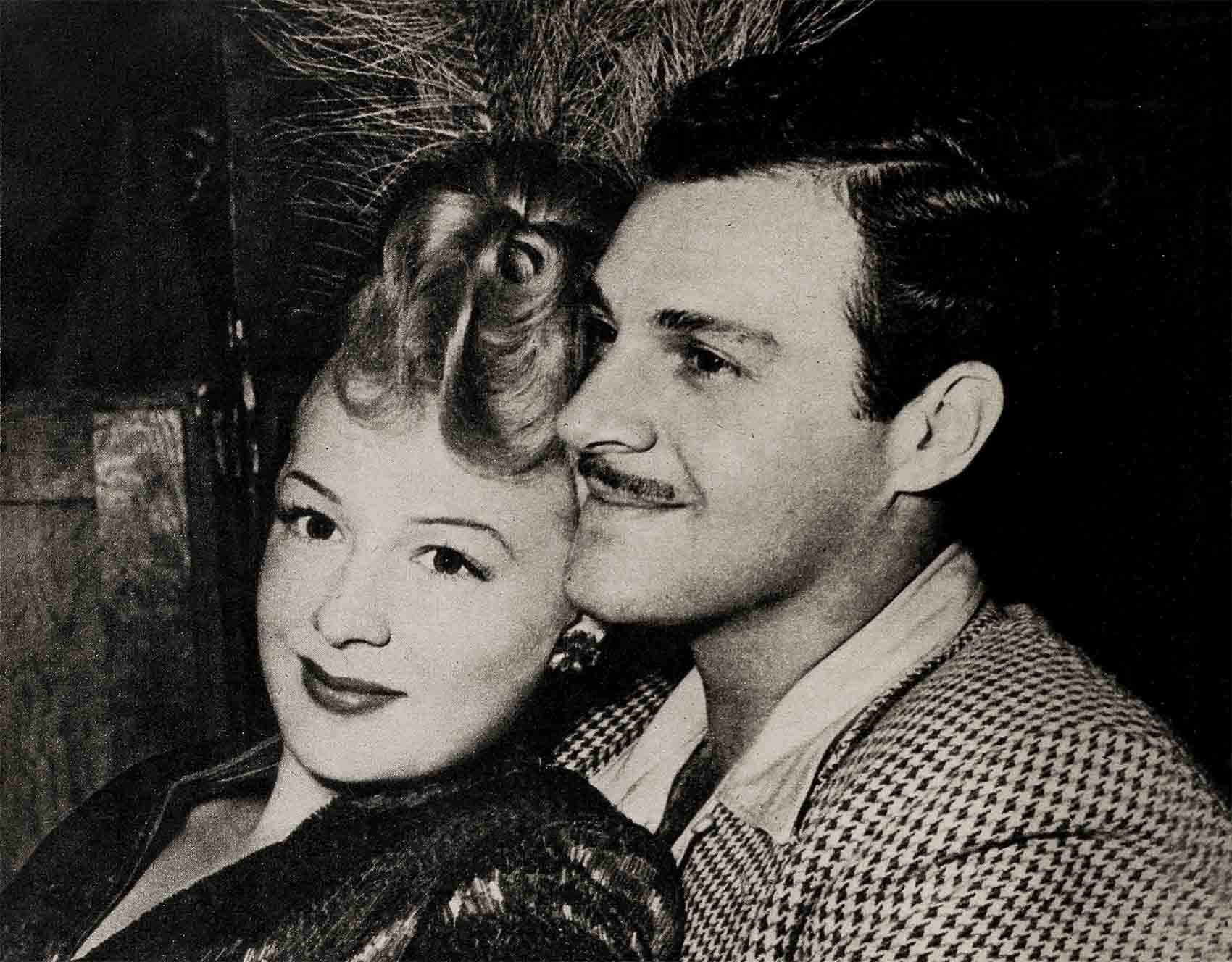
On this particular day, Ted was having a run of bad luck, and he didn’t want to go until he’d recouped his losses. He was too excited to make a note of when his plane was to leave—and he missed it.
When he called Betty to explain, Betty wasn’t in a listening mood. They were expecting guests for dinner that night, and she’d taken special pains to see that the affair would be a lovely one.
Maybe other wives would have tossed the incident off lightly. “My husband’s crazy,” other wives might have said. “He’d lose his head if it weren’t attached.” But those wives you can count on your fingers after you make a fist.
Betty cried, and Ted bristled. He’d have to miss the dinner. So he might as well stay down at Del Mar for two more days.
He must have been trying to prove something—maybe that his desires were as important as anything for which Betty might demand his presence, maybe that his luck would change. Whatever it was, it wasn’t for the best.
If a similar situation arose now, what would Betty do? She’s too strong a personality to back down on principles. He’s no weakling, either. Its hardly likely that a miraculous change will take place in the habits of a lifetime. Adjustments always have to be made in marriage, but this marriage is something unique. Ted and Betty were reared in worlds apart. She’s a harum-scarum girl who loves gay parties and crowds of people. Ted can do without both.
He can do without both in Chicago. It might work out, if they really want it to. Betty seems to want it. She’s tackling the problem like the whole Army team.
At this writing, Ted is with Betty and the children in Sarasota, Florida. She’s doing personal appearances there for Cecil B. DeMille’s The Greatest Show On Earth. They’re calling this time between the acts together their “second honeymoon,” but really, it’s their third. Maybe for Betty, the third time will be the charm.
Her friends say, “We haven’t seen Betty Her enthusiasm is wonderful; it’s contagious.”
But people are always saying that about Betty. She doesn’t stop smiling till the lights go out, then there may be a different face on the girl. A face that would reveal a truer answer than anyone could possibly guess.
THE END
—BY MARY JANE LILLY
It is a quote. MODERN SCREEN MAGAZINE FEBRUARY 1951





No Comments